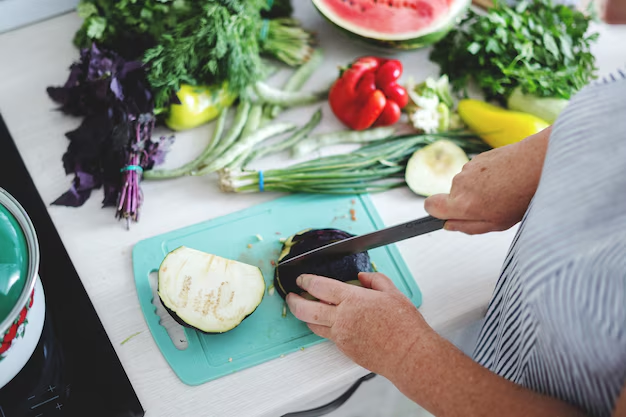Storing Onions: Should They Go in the Refrigerator?
Onions are a culinary staple, found in countless recipes from around the world. They add flavor, depth, and texture to a variety of dishes, from soups and stews to salads and sauces. But once you've brought them home from the market, a common question arises: Can you store onions in the refrigerator? Let's explore this topic in detail and unpack the best practices for storing onions, as well as some related tips to ensure their freshness and longevity.
The Basics of Onion Storage
Room Temperature Storage
Traditional Wisdom: It's generally advised to store whole, unpeeled onions in a cool, dry, and dark place. This includes locations like a pantry, basement, or any well-ventilated space. Proper air circulation helps to keep onions fresh for longer.
Rationale: Onions need cool, not cold, air to reduce moisture buildup that can lead to spoilage. Humidity is also the enemy of onions, which can cause them to rot prematurely if stored improperly.
Refrigeration: When and Why
While it isn't typically recommended to store whole, unpeeled onions in the fridge, there are scenarios where refrigeration becomes necessary:
Peeled, Cut, or Sliced Onions: Once an onion is peeled or cut, it should indeed be stored in the refrigerator. This helps maintain its freshness, prevents it from drying out, and minimizes the risk of bacterial growth.
Green Onions: These have a higher moisture content and are best stored in the refrigerator to maintain their crispness and flavor.
Hot Climates: In regions with extremely hot or humid climates, refrigerating onions may prolong their shelf life, especially if a cool and dry environment isn't available.
Tips for Refrigerating Onions
Proper Packaging
When refrigerating onions, particularly once they've been cut, place them in an airtight container or a resealable plastic bag. This not only preserves their moisture but also prevents their pungent aroma from affecting other foods.
Duration
Refrigerated onions typically last up to a week. It's wise to check them periodically for signs of spoilage, such as an off smell or a slimy texture.
Common Missteps in Storing Onions
Avoiding Moisture
A critical mistake is storing onions in plastic bags at room temperature. Plastic traps moisture and inhibits air circulation, which can lead to sprouting or spoilage. Instead, opt for mesh bags or open baskets.
Storing Near Other Produce
Some fruits, like apples and potatoes, emit ethylene gas, which can accelerate the decay of onions. Onions should be kept separate from these ethylene-sensitive produce items.
Storing Whole Onions in the Fridge
Whole onions can become soft and spoil more rapidly if stored in the refrigerator because the cold and humid environment can break down their cell structure.
Related Food Storage Strategies
Extending Shelf Life of Other Vegetables
Garlic: Like onions, garlic prefers a cool, dry location. Avoid refrigeration as it can cause it to sprout.
Potatoes: Store in a paper bag in a dark, dry place. Keeping them near onions can cause both to spoil faster due to the gases they emit.
Herbs: Many herbs last longer when placed in a jar with some water and covered loosely with a plastic bag in the refrigerator.
How to Tell When Onions Are Past Their Prime
While proper storage can extend the life of your onions, it's important to recognize when they are no longer good to use. Here are some signs:
- Touch: Soft or mushy spots indicate spoilage.
- Smell: An off or sour smell is a clear indicator the onion has turned bad.
- Sight: Mold, powdery mildew, or dark spots are signs of decay.
Maximizing the Use of Onions
Cooking with Older Onions
When onions approach the end of their shelf life, consider using them in cooked dishes where slight changes in textural integrity are less noticeable. Soups, casseroles, and sautés can mask these imperfections while salvaging their flavor.
Preserving Onions
Freezing: Onions can be chopped and frozen for later use, though this may change their texture, making them best suited for cooked dishes.
Pickling: Pickled onions serve as a tangy condiment suited for tacos, burgers, and salads, adding longevity to an otherwise perishable ingredient.
Practical Summary of Onion Storage
Here’s a quick guide to help you store onions effectively:
- 📦 Whole Onions: Store in a cool, dry, and ventilated area.
- ❄️ Cut Onions: Wrap tightly and refrigerate to prevent drying and odors.
- 🌿 Green Onions: Keep refrigerated for best texture and flavor.
- 🔎 Check Regularly: Watch for spoilage signs and use promptly if nearing the end of shelf life.
- 🌐 Avoid Plastic: Use mesh bags or open containers to prevent moisture build-up.
Understanding how to store onions properly is key to maintaining their quality and maximizing their utility in your kitchen. Through informed storage practices, you can both prevent waste and ensure your culinary creations are consistently delicious. So, should you store onions in the refrigerator? The answer is nuanced, relying on the type of onion and its current state. By applying these tips and strategies, your onions—and your cooking—will surely come out on top.

